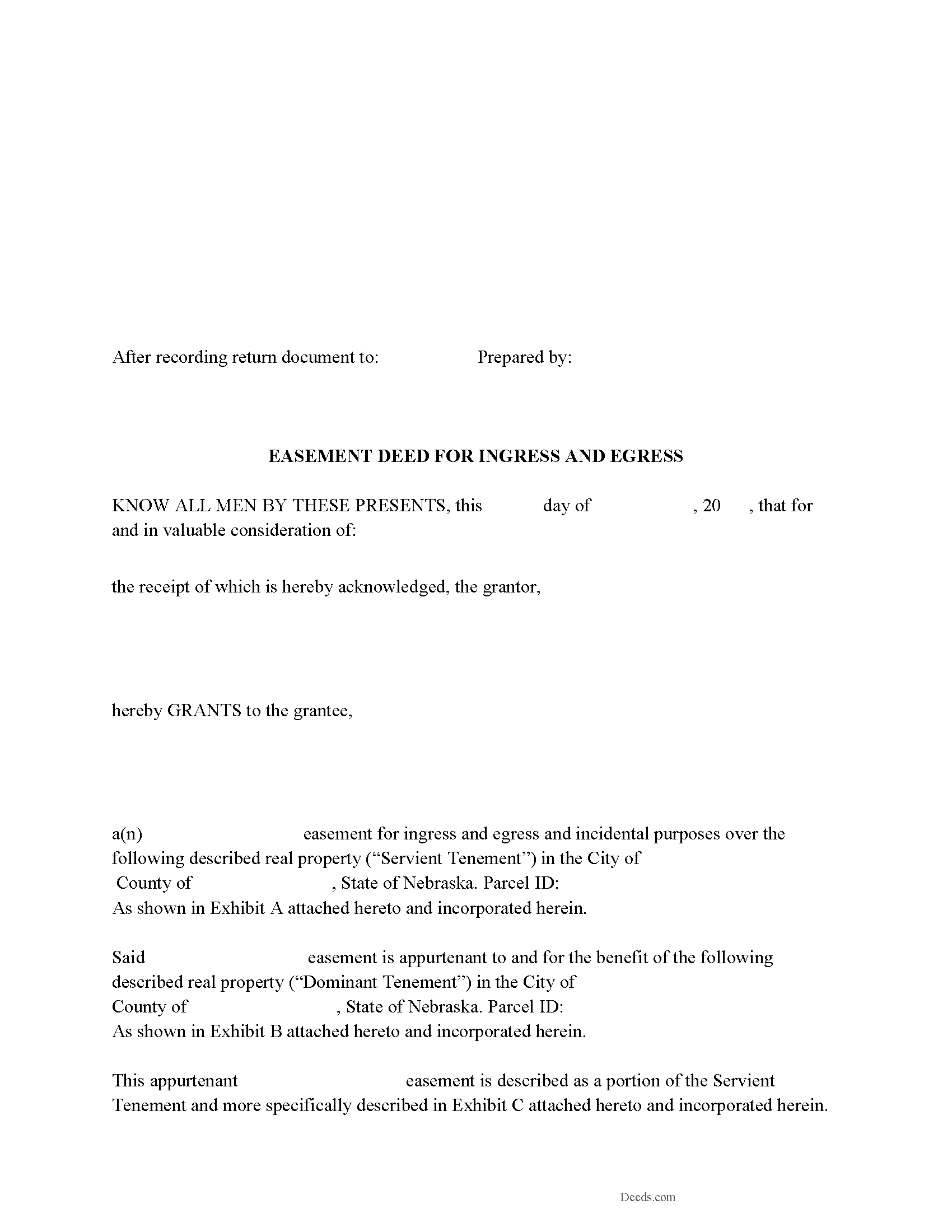Download Nebraska Easement Deed Legal Forms

Nebraska Easement Deed Overview

An easement is an interest in real property that allows one person to use another person's property for a specific purpose. An easement deed is the instrument that creates the right to use another's property. Easements can be created to benefit a dominant estate and will run with the land, or they can be created to benefit an individual or a legal entity. The terms of the easement should be contained in the easement deed.
A conservation or preservation easement is an interest in real property and is created by an instrument in which the purpose for the easement is clearly stated. This type of easement is not effective until it is accepted by the holder. Conservation or preservation easements are recorded, filed, and indexed in the office of the register of deeds in the county where the property subject to the easement is located (76-2,112).
In order for an easement deed to be considered lawfully recorded, it must be acknowledged or proved in the manner prescribed by Nebraska Revised Statutes (76-241). If executed in Nebraska, the easement deed must be signed by the grantor or grantors, be acknowledged or proved, and recorded. Acknowledgments must be done in accordance with section 64-205 of the Nebraska Revised Statutes and may be made or proved before a judge or clerk of any court, a United States magistrate, or notary public. No such officer can take acknowledgments or proof outside of his or her territorial jurisdiction (76-217). If acknowledgments or proof are done in another state and according to the laws of such state, the easement deed will be eligible to record in Nebraska (76-219).
An easement deed or other instrument relating to or affecting the title to real estate in Nebraska should be recorded in the office of the register of deeds in the county where the real property subject to the easement is located. If an easement deed is not recorded, it will be valid between the parties to the instrument (76-238). After it is delivered to the register of deeds for recording, an easement deed will take effect and be in force as to all creditors and subsequent purchasers in good faith and without notice. All deeds are void to all creditors and subsequent purchasers without notice whose deeds, mortgages, or other instruments are recorded first (76-238).
(Nebraska ED Package includes form, guidelines, and completed example)